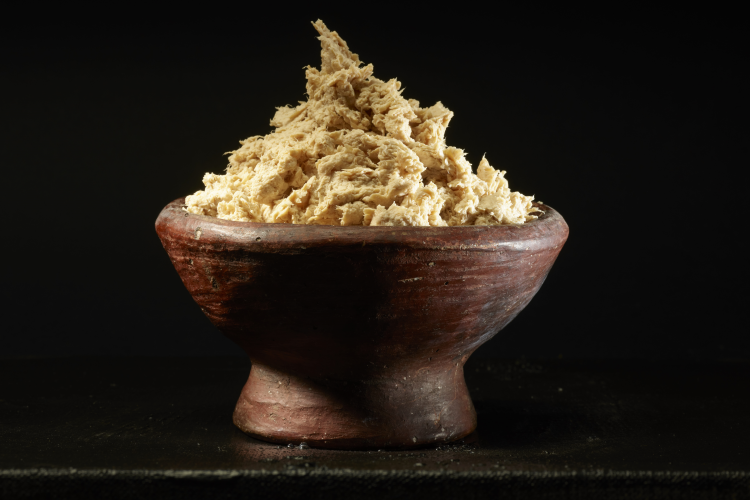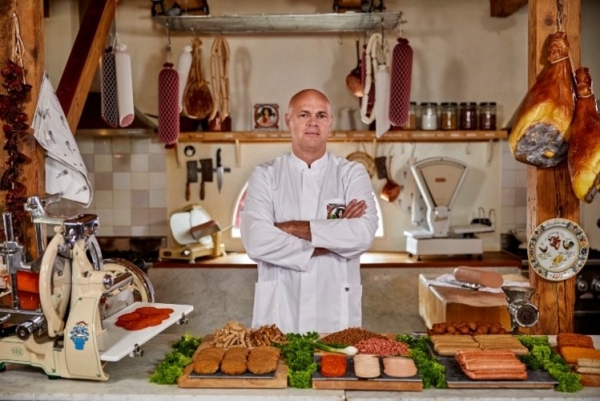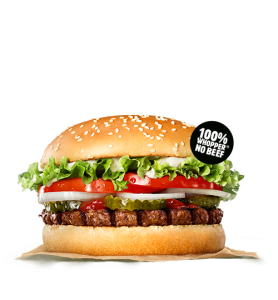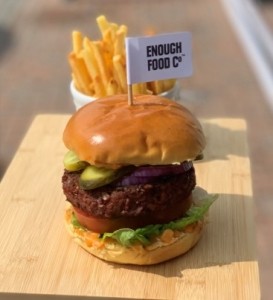Unilever partners with mycoprotein supplier ENOUGH on ‘game changing’ protein innovation

ENOUGH, formerly 3f Bio, produces ABUNDA mycoprotein, a ‘complete’ food ingredient that contains all nine essential amino acids and is high in dietary fibre. According to the start-up, ABUNDA is ‘versatile’ and can be made into alternative meat, seafood and dairy products.
ABUNDA will initially be used by Unilever’s alt meat brand, The Vegetarian Butcher. However, the adaptability of the ingredient means there is a long runway of innovation potential, a spokesperson for Unilever told FoodNavigator.
“It's still early days but we see huge potential to apply the technology to our portfolio across various ranges – in existing products as well as innovating new products. We also see potential in other areas where sustainable protein is important, such as non-dairy ice cream or healthy snacking.”
Plant-based innovations like this will support Unilever’s goal to develop its portfolio in high-growth spaces and contribute towards its target to generate plant-based sales of €1bn a year globally by 2025-2027, the company said.
“Plant-based foods is one of Unilever’s fastest growing segments and we’re delighted to partner with ENOUGH to develop more sustainable protein products that are delicious, nutritious, and a force for good. We’re excited by the potential that this technology has for future innovations across our portfolio, and we can’t wait to launch more plant-based foods that help people cut down on meat, without compromising on taste,” Carla Hilhorst, EVP of R&D for Foods & Refreshment at Unilever, commented.
The Vegetarian Butcher: ‘There is beauty in blending proteins’
The Vegetarian Butcher, which grew over 70% in 2020 and is available in 45 countries across four continents, aims to become ‘the largest butcher in the world’.
The brand produces a range of products leveraging a ‘diverse blend’ of plant-based proteins to deliver meat-like tastes and textures. It recently launched a vegan Raw Burger that offers the ‘taste and juicy tenderness’ of a rare beef burger. In partnership with Burger King, The Vegetarian Butcher has developed products including the Plant-Based Whopper, Plant-Based Nuggets and Vegan Royale.
ABUNDA will be blended with other plant-based proteins to produce additional meat-like products under the brand.
“There is beauty in blending proteins and ultimately you need to use the combined properties of many ingredients to create the complex taste and textures our Vegetarian Butcher products are famous for. The closer we get, the more intricate these interactions become. ABUNDA will play an important role in the texture of the brand’s future products,” the spokesperson explained.
Exploring sustainable proteins
The tie-up is part of Unilever’s ongoing efforts to explore sustainable and nutritious protein sources that can be leveraged as part of a toolbox to produce increasingly meat-like substitutes.
“The Vegetarian Butcher has always explored different proteins as one of the pioneers in the plant-based meat space,” the Unilever spokesperson noted.
“In addition to novel plant protein sources, we are exploring a range of other sustainable proteins, including mycoproteins from other fungal species and proteins from other microorganisms such as microalgae.” Last year, for instance, Unilever entered into a tie-up with biotech start-up Algenuity to develop algae as a sustainable and nutritious protein source.
ABUNDA is grown by feeding fungi with sugar feedstocks, sourced from sustainable grains, in a large-scale continuous fermentation process. The ingredient’s ‘game changing’ nutritional profile, functional performance, low footprint and high protein conversion rates have proven a good fit for Unilever’s fast-growing plant-based brand.
“We chose ABUNDA because it has a clean, neutral taste, is highly nutritious (high in protein, fibre and zinc, low in fat and free of cholesterol), and is produced using a highly efficient, zero-waste process,” the spokesperson noted.
ENOUGH eyes impact at scale: ‘Sustainability is at the heart of everything we do’
According to ENOUGH, the impact of producing 1m tonnes of ABUNDA will be equivalent to replacing 5m cows, over 1bn chickens and reducing more than 5m tonnes of CO2 emissions.
“Sustainability is at the heart of everything that we do,” ENOUGH Commercial Director Andrew Beasley told FoodNavigator. “With demand for protein increasing at three times the rate of expected population growth, and demand for meat alternatives growing by over five times that of protein, traditional protein farming is unsustainable. To combat this, ENOUGH has developed a high-quality sustainable protein solution to that of traditional farming of animals for protein production.”
Beasley explained that ENOUGH’s fermentation process is ‘more resource-efficient than both animal and plant farming’. ABUNDA mycoprotein uses 97% less feed than beef, 80% less than chickens and 40% less feed than soya beans. It is also significantly more water efficient, using 93% less water than beef, 55% less water than chickens and 29% less water than soy. The company reported that its carbon emissions are 97% lower than beef, 80% lower than chickens and 53% lower than soy.
“ENOUGH’s technology combines two stand-alone processes into a proprietary zero waste, integrated process to yield mycoprotein. Creating a zero-waste integrated process enables us to produce in the most efficient manner, and thereby creating more with less,” Beasley explained.
Founded in 2015, Glasgow-based ENOUGH is currently building a ‘first of its kind’ mycoprotein factory in the Netherlands, which will have a 50,000-tonne capacity. The company expects to initially grow 10,000 tonnes per annum when the facility is operational – by the end of 2022 – and has targeted production of over a million tonnes cumulatively within 10 years of its launch.
This ambition will be supported by the exponential growth of global demand for plant-based products. A recent report from the Boston Consultancy Group, titled Food for Thought: The Protein Transformation, poses a base-case scenario predicting the market for alternative proteins will grow from the current 13m metric tons a year to 97m metric tons by 2035, when it will make up 11% of the overall protein market. Faster technological innovation and full regulatory support could speed growth to 22% of the market by 2035, the consultancy suggests.
ENOUGH already has commitment for 75% of its initial capacity from a mix of global and regional brand partners and leading retailers, including a deal to supply UK retailer Marks and Spencer.
Beasley said working with Unilever aligns with ENOUGH’s ambitions to scale. “Producing vast quantities of healthy and sustainable protein is one of the most urgent global priorities. There’s a rapid transition in the food industry and we are excited with this collaboration with Unilever and The Vegetarian Butcher, which truly supports our aim to create impact and scale.”




























